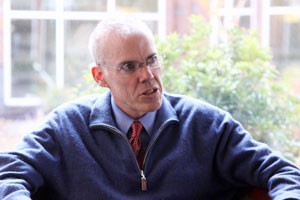 More than 100 years ago, an American Geographer, Ellen Churchill Sempel, published an important book which was the basis for a field of thought called Environmental Determinism which later inspired scholars including UCLA’s Jared Diamond and many others.
More than 100 years ago, an American Geographer, Ellen Churchill Sempel, published an important book which was the basis for a field of thought called Environmental Determinism which later inspired scholars including UCLA’s Jared Diamond and many others.
Ms. Sempel was a remarkable woman who went to Vasser college when she was 16 and graduated first in her class three years later in 1882. After returning to her native Kentucky, Sempel went on to Europe where she attended Oxford and then went on to Leipzig to study under Frederick Ratzel, one of the pioneers in the field of geo-politics, and reportedly had to initially listen to his lectures from the hallway as women were not allowed at the University at that time.
You are where you live
Sempel’s basic idea, for which she gave much credit to her German mentor, is that the natural environment has an enormous impact on people and the societies and cultures they develop. In her view the local climate, the richness of the soil and topography have a direct influence in how people understand themselves and their relation to the world and affects everything from social customs to religious beliefs. Similarly a culture is formed by its access or lack of access to the sea and rivers which permit commerce and ideas to flow. Similarly, some countries are bordered by impassible mountains, seas, and desserts which also influence the way these cultures are shaped and develop over time.
Perhaps Sempel’s most important idea is that these impacts happen over very long time periods and are only part of the story about how societies develop. This dynamic view of the relationship between culture and the environment is critical, in my view, as it also allows technological evolution to play a role as its advance changes our ability to cross mountains and oceans and deal with the world around us.
Real changes to our climate

After the historic agreement on climate change was made in Paris last week, Bill McKibben, resident scholar at Middlebury College in Vermont and co-founder of 350.org, wrote an opinion essay in the New York Times which eloquently makes the case that the approximately 1 degree rise in temperature that we have already induced is already causing havoc around the world.
In 2005, Diamond published a book called Collapse which charts the way a number of ancient societies failed to deal with their own changing climate and perished as a result. In the book he asks if we are going along the same path but in reading Ms. Sempel’s work I’m beginning to think that is the wrong question.
On the Paris agreement, Barak Obama made a customarily articulate speech defending the agreement and calling on the people of the world to not only put it into practice but to ratchet up the cuts in emissions sufficiently to meet its ambitious goals.

What’s at stake?
The key issue, in my view, is how will our countries and societies meet the threat of climate change or, failing to meet it, adapt to a changing world. If Prof. McKibben and his colleagues are correct, we may be headed for a period of instability from a climatological perspective. Ms. Sempel would maintain that such a world is likely to also have social and political instability as a direct result.


But would we able to coordinately to take the next step after COP21? It was, the first one, but after the summit we need facts, not words.